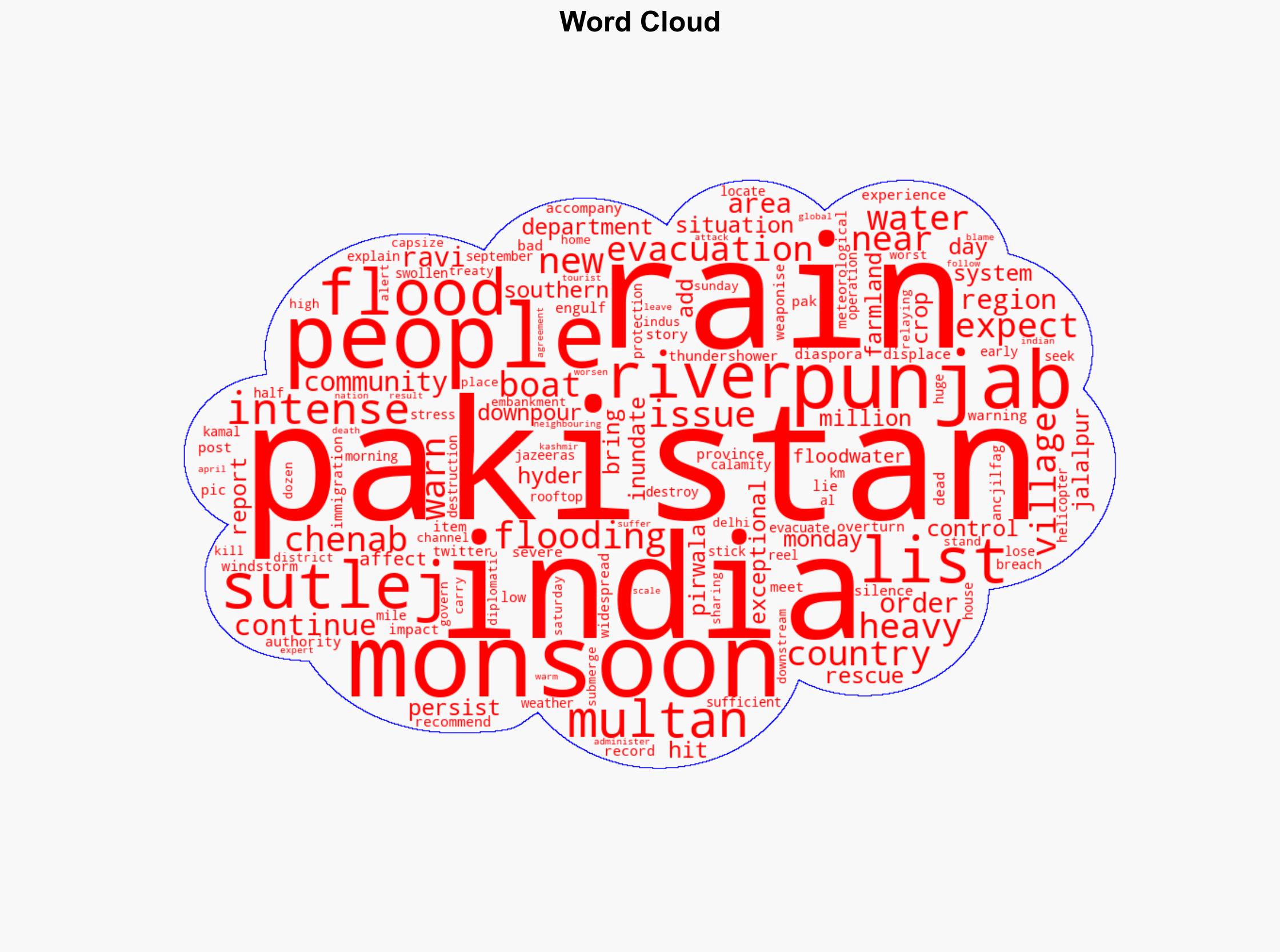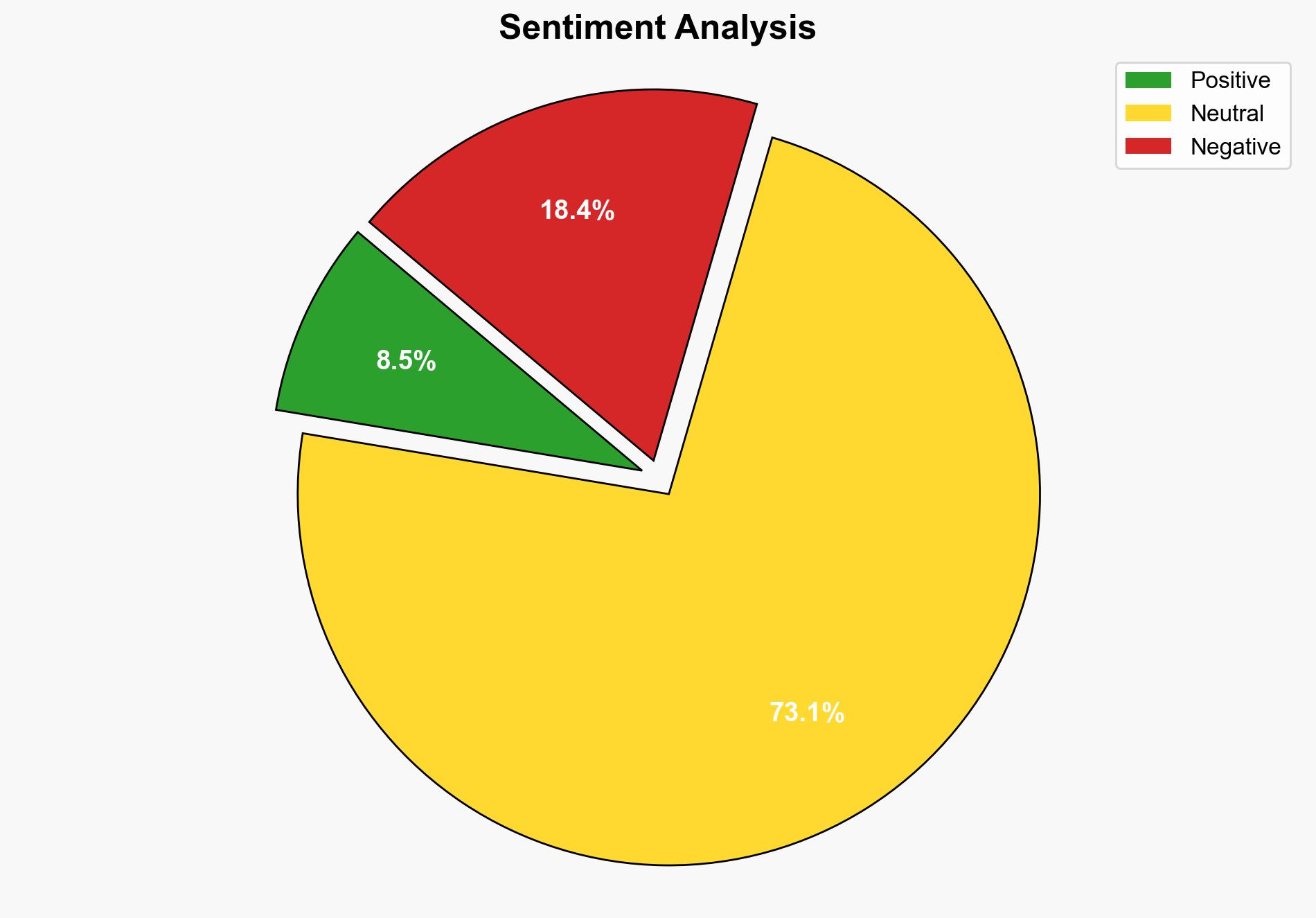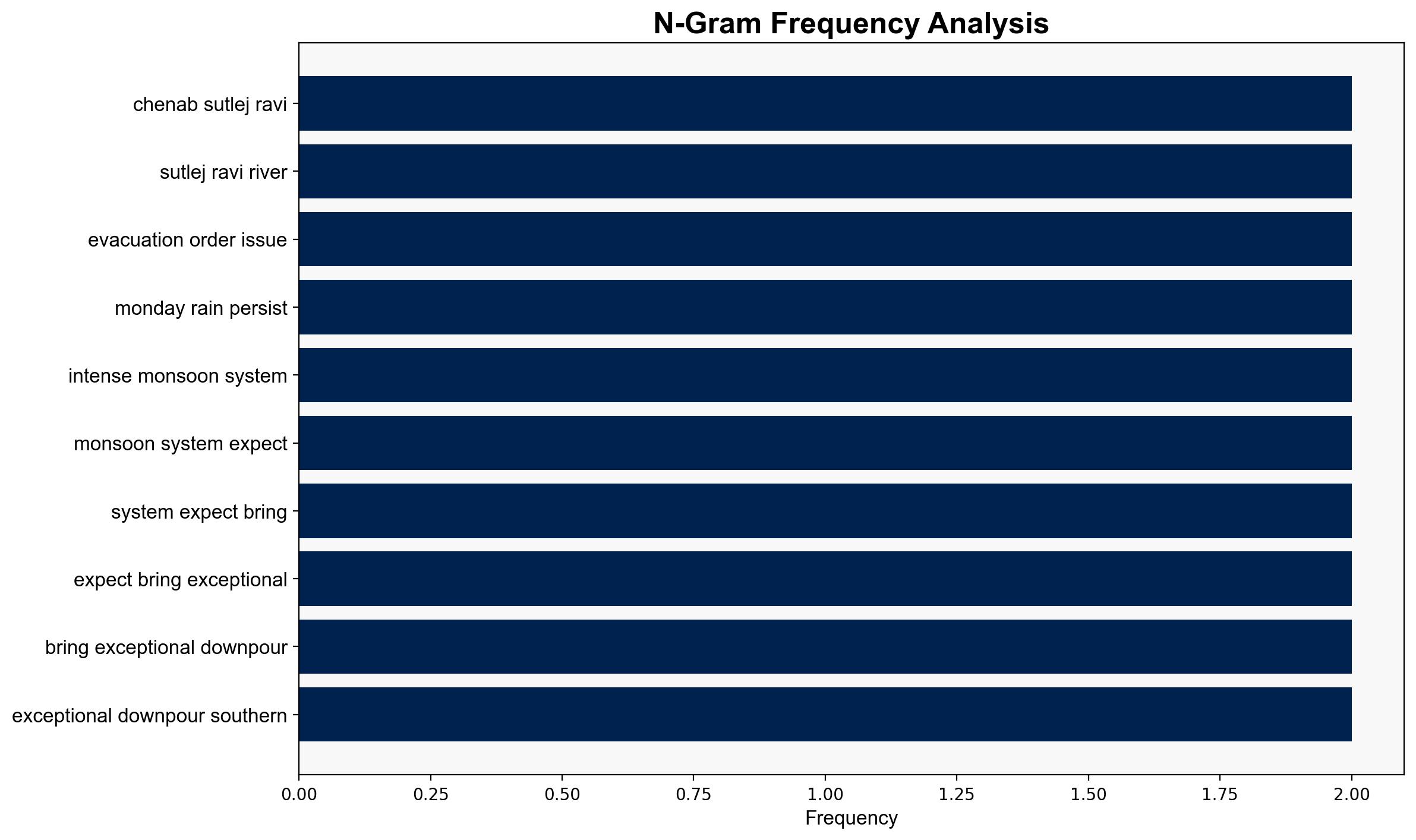Intense monsoon rain flooding continue to engulf Pakistans Punjab – Al Jazeera English
Published on: 2025-09-08
Intelligence Report: Intense Monsoon Rain Flooding Continues to Engulf Pakistan’s Punjab
1. BLUF (Bottom Line Up Front)
The most supported hypothesis is that the intense monsoon rains and subsequent flooding in Pakistan’s Punjab are primarily exacerbated by climate change, leading to severe humanitarian and economic impacts. Confidence Level: High. Strategic recommendation includes immediate international humanitarian aid and long-term investment in climate resilience infrastructure.
2. Competing Hypotheses
Hypothesis 1: The flooding in Pakistan’s Punjab is primarily a result of climate change, which has intensified the monsoon rains, leading to unprecedented flooding levels.
Hypothesis 2: The flooding is primarily due to inadequate infrastructure and poor disaster management, which have failed to mitigate the effects of regular monsoon rains.
Using the Analysis of Competing Hypotheses (ACH) 2.0, Hypothesis 1 is better supported due to the consistent pattern of increasing monsoon intensity linked to global warming trends. Hypothesis 2 is less supported as the infrastructure issues, while significant, do not fully account for the exceptional rainfall levels.
3. Key Assumptions and Red Flags
Assumptions for Hypothesis 1 include the acceptance of climate change as a significant factor in weather pattern changes. For Hypothesis 2, it assumes that infrastructure improvements alone could mitigate flooding. A red flag is the lack of detailed data on government preparedness and response effectiveness. Potential cognitive bias includes over-reliance on climate change narratives without considering local governance factors.
4. Implications and Strategic Risks
The flooding poses significant humanitarian risks, including displacement and food insecurity. Economically, the destruction of crops could impact local and national economies. Geopolitically, tensions with India over water management could escalate, especially given the historical context of the Indus Water Treaty. The psychological impact on affected populations could lead to increased domestic unrest.
5. Recommendations and Outlook
- Immediate international aid should be mobilized to provide relief and support evacuation efforts.
- Long-term investments in flood defenses and climate adaptation infrastructure are crucial.
- Diplomatic engagement with India to ensure cooperative water management and reduce tensions.
- Scenario Projections:
- Best Case: Effective international aid and infrastructure improvements mitigate future flooding impacts.
- Worst Case: Continued flooding exacerbates humanitarian crises and escalates geopolitical tensions with India.
- Most Likely: Short-term relief efforts stabilize the situation, but long-term risks remain without significant infrastructure investment.
6. Key Individuals and Entities
Kamal Hyder (reporter), Pakistan Meteorological Department, Indian government (in context of water management and diplomatic relations).
7. Thematic Tags
climate change, humanitarian crisis, regional stability, water management, disaster preparedness





